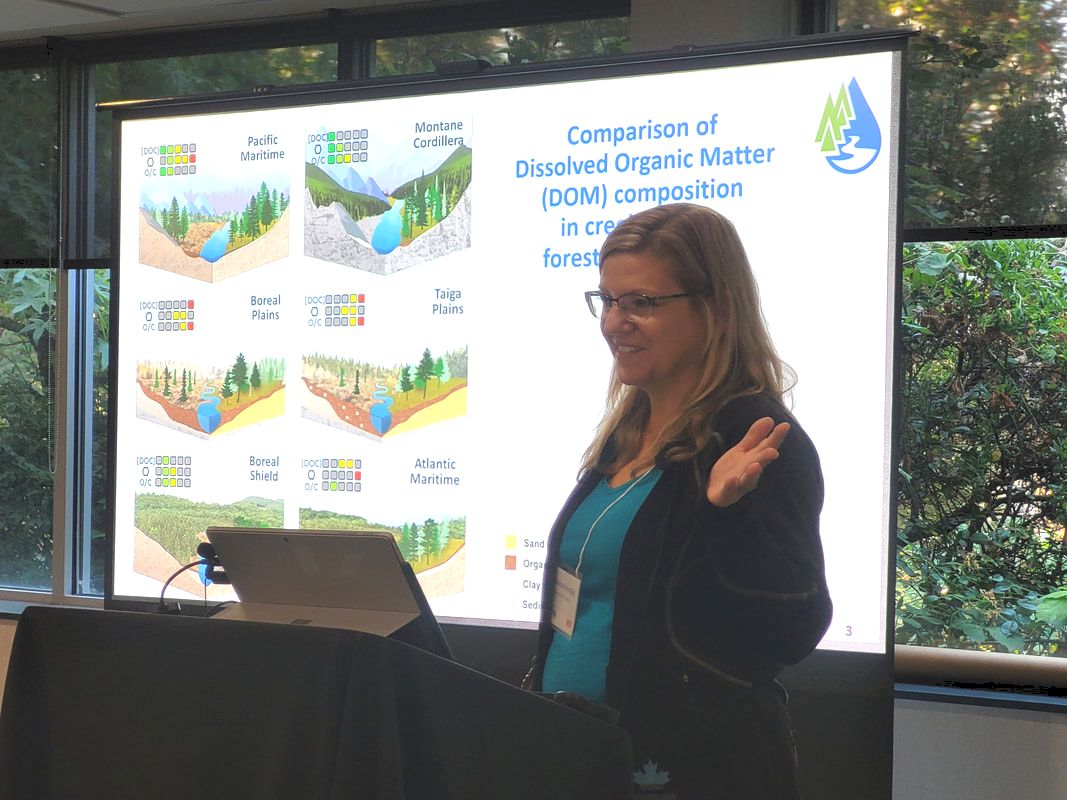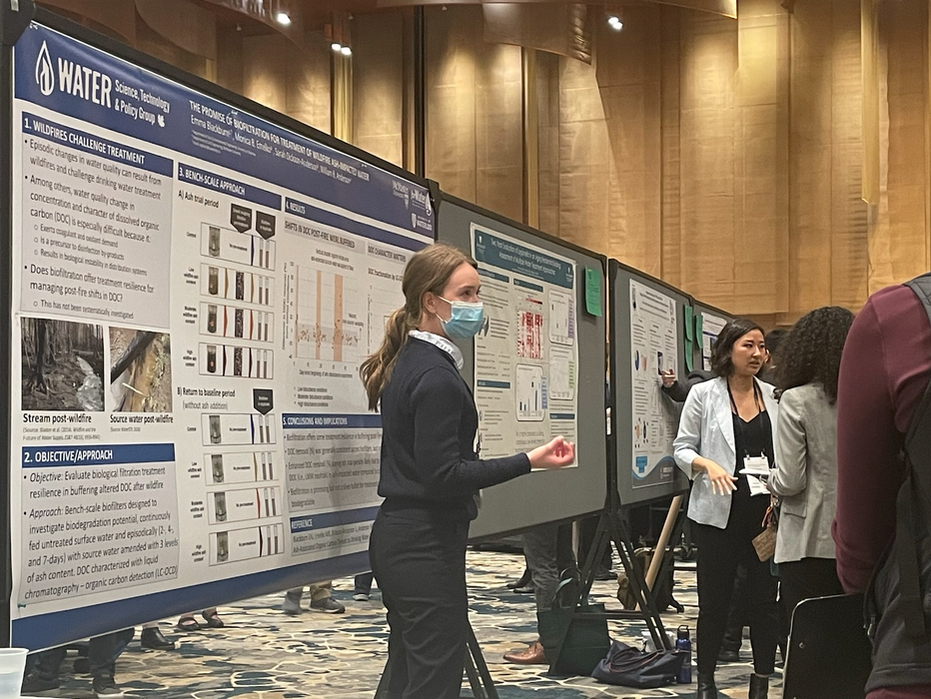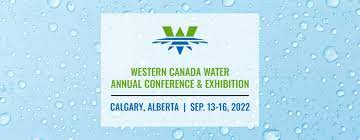|
With the reopening of in-person conferences, this fall saw many forWater members showcasing their research across North America. Over 15 presentations of critical research touching on many different aspects of source water protection were shared across four major international conferences. Researchers presented at National Water & Wastewater Conference (NWWC) in Halifax and American Water Works Association's Water Quality Technology Conference (WQTC) in Cincinnati as well as the Western Water Conference in Calgary. Several researchers will be participating in the American Geophysical Union's (AGU) fall meeting in Chicago on December 12-16. The research shared by Network members gave key insights to a range of water quality & treatability questions including: increasing coagulation efficacy, sharing lessons from wildfire-impacted regions, improving detection and removal of waterborne pathogens, and characterizing nutrient transport dynamics in watersheds impacted by landscape disturbance. Conference attendees were enthusiastic about in-person opportunities to network and collaborate with international colleagues again. A senior researcher noted their best conference presentation of their career at one of the conferences, receiving interest from a number of government researchers in attendance. Emma Blackburn, a PhD candidate in the forWater Network studying in Monica Emelko's lab at the University of Waterloo won an award at the Young Professional Poster session at AWWA's WQTC. Blackburn's poster considered the use of biofiltration for wilfire-impacted water and shared the feasibility of this green technology. This honour comes with the opportunity to write a blog post for AWWA, an e-newsletter with international readership. For further details, please see a list of forWater member conference presentations below. List of conference presentationsAmerican Geophysical Union's Fall Meeting, Chicago, Illinois, December 2022 Rafaela Maltauro presents; et al. Characterizing multimodality in effective particle size distributions of suspended particulate matter in a gravel bed river. Mike Stone presents; et al., Impact of wildfire on particulate Phosphorus forms in gravel bed rivers at large basin scales. Robert (Will) Fines presents; et al. Legacy impacts of clear cut harvesting on stream flow and phosphorus concentrations at Turkey Lakes Watershed. Alyssa Bourgeois presents; et al. Hydrology predominates over harvesting and physiography to control water quality and treatability in forested watersheds on Canada’s Pacific Coast. Annie Gray presents et al. Dissolved organic carbon in two boreal shield headwater catchments. Nandita Basu presents; et al. Nature-based solutions for sustainable water and food futures. Uldis Silins presents; et al. Fire, flooding, and forestry in a warmer Rocky Mountain Region: Impacts of natural and anthropogenic land disturbances on watershed sediment production. Eamon Turner presents; et al. Pushing the boundaries of BACI: Effects of the 2017 Kenow Mtn. wildfire on flow regime of Cameron Creek, Waterton Lakes National Park. Tyler Hampton presents; et al. Wildfire alters stream nutrient concentration-discharge relationships. Julia Orlova presents; et al. Influence of landscape, climate and disturbances on the chemical composition of riverine dissolved organic matter across Canada’s forested ecozones. American Water Works Association's Water Quality Technology Conference & Exposition, Cincinnati, Ohio, November 2022 Monica Emelko presented; et al. The legacy of wildfire in Fort McMurray, Canada: Elevated organic carbon, cyanobacteria blooms, and treatment upgrades Philip Schmidt presented; et al. Making QMRA more quantitative: Important concepts in interpreting microbial data Emma Blackburn presented [poster]; et al The promise of biofiltration for treatment of wildfire-ash impacted water. Award! Canadian Water & Wastewater Association's National Water & Wastewater Conference, Halifax, Nova Scotia, November 2022 Monica Emelko, Antoine Rempp presented; et al. Climate change adaptation lessons from severe wildfire in Fort McMurray: Extensions to other fire-prone regions and beyond Philip Schmidt presenter; et al. A new approach to estimating microbial concentrations from qPCR data based on not-so-new quantitative microbiology theory Monica Emelko presenter; et al. Waterborne Pathogens: Recognizing When Sole Reliance on Turbidity is Insufficient and Identifying Best Available Approaches for Risk Management Western Canada Water Conference,
Calgary, Alberta, September 2022 Monica Emelko presented; Treatment of enteric protozoa: What to do when 3-log Treatment is not enough and why adopting Health Canada's guideline in Alberta makes sense Jesse Skwaruk presented; et al. Fires, floods and other landscape disturbances: Key insights for increasing utility preparedness Kelsey Kundert presented; et al. Powering up your coagulation game. Zeta potential usage optimizing dual media filtration
0 Comments
Leave a Reply. |
forWater NetworkThe Network provides insights into new scientific research for safe, secure drinking water---globally---which starts with resilient forests Archives
October 2023
Categories |







 RSS Feed
RSS Feed

